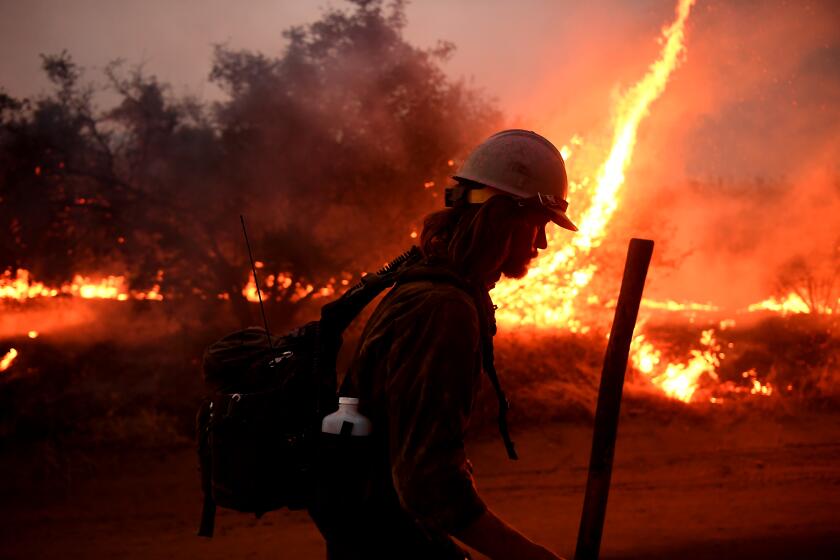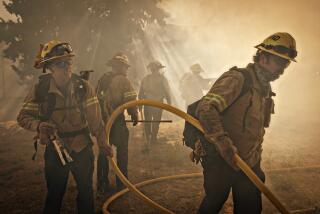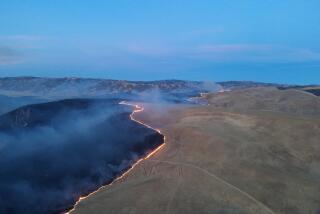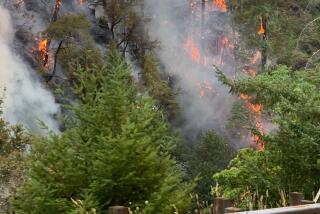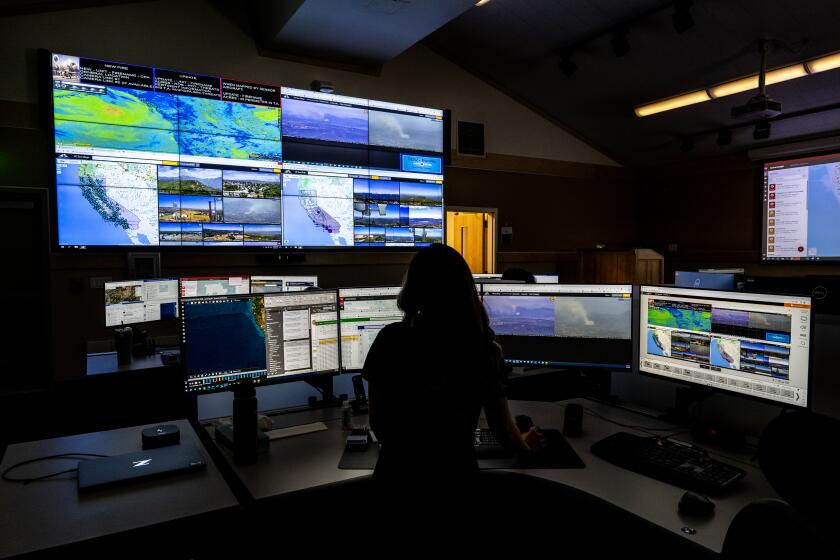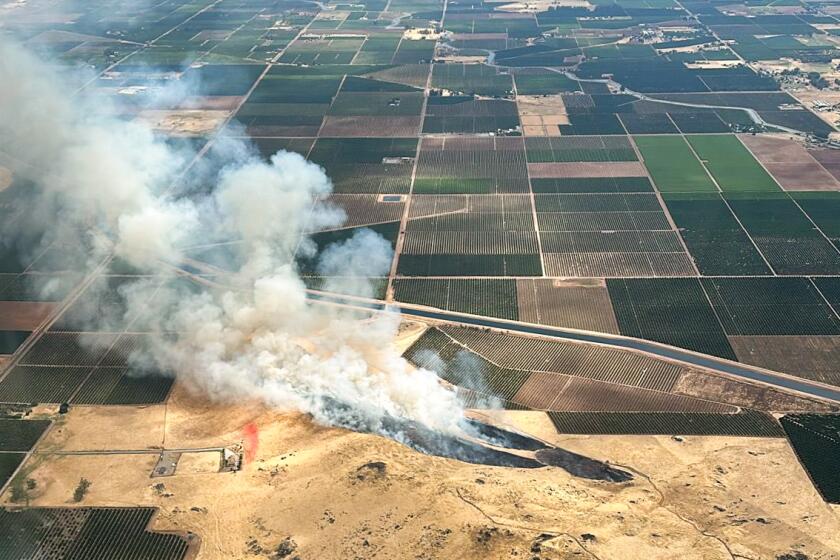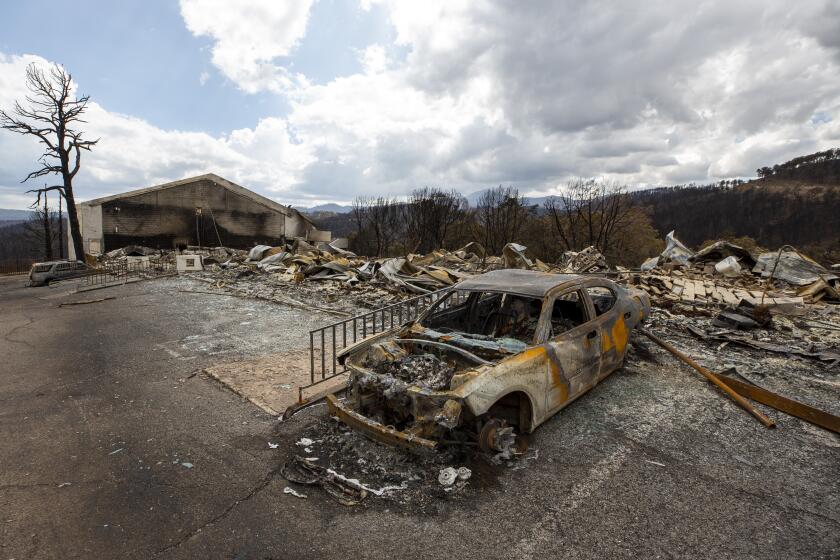More than 100 hikers, campers flown out by helicopter as flames advance
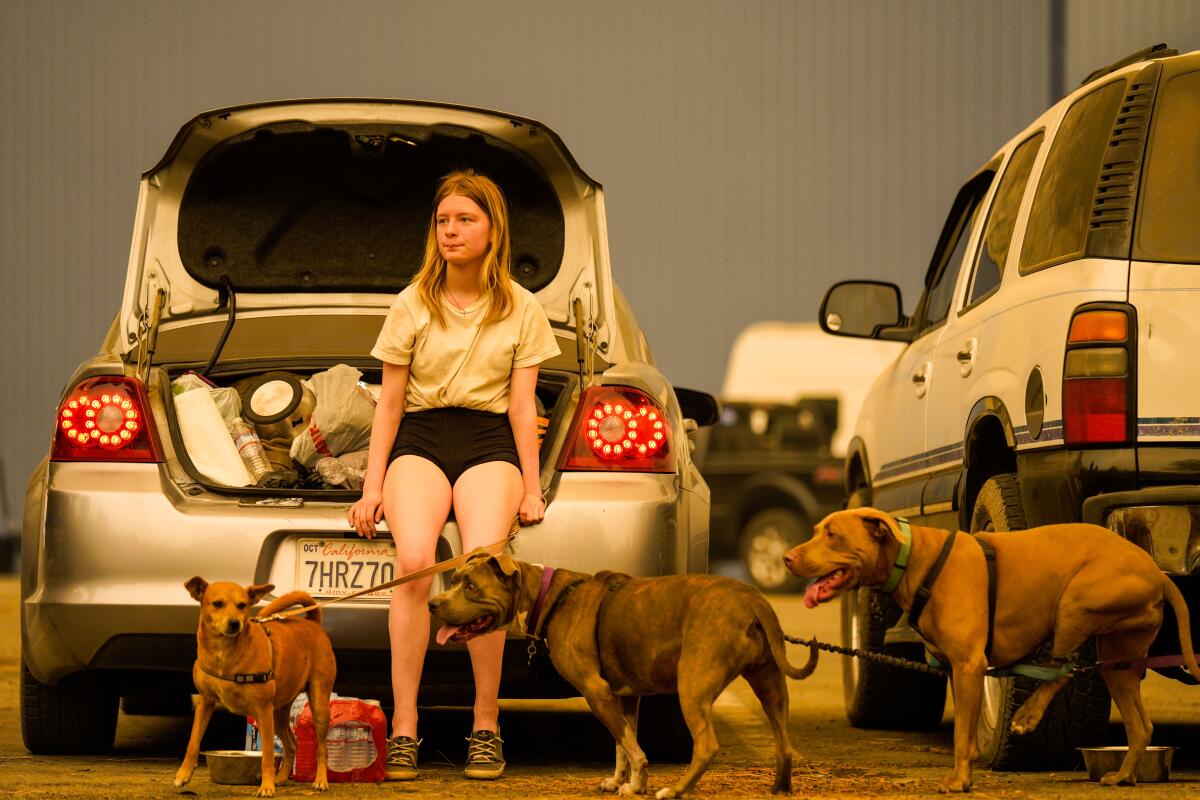
Helicopter crews braved dangerous smoke and flames Tuesday to reach more than 100 hikers, campers and other people stranded in remote locations of the Sierra Nevada by the destructive Creek fire.
Officials hope to transport another 65 people out of the area through the day.
The blaze exploded to more than 100,000 acres over the Labor Day weekend, moving too fast to allow easy passage out for people enjoying the holiday at many recreation areas.
U.S. Forest Service Supervisor Dean Gould told reporters Monday night that the Creek fire was an “unprecedented disaster,” adding it was “in a class by itself.”
On Monday night, the Fresno Fire Department said crews tried to get to people at Lake Edison and China Peak, but “rescue efforts were unsuccessful [as] military pilots tried valiantly to land, but heavy smoke conditions prevented a safe approach.”
Pilots were able to complete some rescue missions early Tuesday, though. Three pre-dawn helicopter flights pulled 35 additional people from the Sierra National Forest, the California National Guard said.
One person — a teenager who was on a fishing trip with his family near Huntington Lake — told KFSN-TVthat he and others had been trapped for 14 hours before being hoisted from China Peak Mountain Resort.
“It was kind of hard to breathe, but then I got through it because I stayed in the car most of the time. It went by faster because I was asleep,” 14-year-old Ethan Thao of Fresno told the station.
Since the early morning hours, the California National Guard has reported transporting nearly 100 people, as well as five dogs, primarily from Lake Edison.
“After landing in Fresno, those rescued are brought into a Cal Guard facility and medically screened by National Guard nurses and physicians,” officials wrote on Facebook. “They’re also given water, food and a chance to call or reunite with friends and family just outside of the facility.”
On Saturday night, some 200 campers trapped by flames at Mammoth Pool Reservoir were rescued by two California National Guard helicopters. Officials described the chopper runs as unprecedented in size and scope for a fire rescue.
“I spoke with the crew members afterward and they said it was one of the greatest missions they’ve ever done just because of the feeling of relief the individuals who were rescued had,” said Col. Dave Hall, commander of the Guard’s 40th Combat Aviation Brigade. “They were literally giving the crew chiefs hugs as they were boarding the helicopter.
Damage to property and homes has been more difficult to assess. The fire is burning so dangerously and intensely that crews that normally count destroyed houses and buildings have been told to stand down for their own safety.
But it was clear the small Sierra town of Big Creek was hard hit, with numerous homes lost.
Intense Diablo winds are forecast for parts of Northern California while Santa Ana winds are expected in Southern California.
Fueled by millions of dead trees, the Creek fire has raced through mountain communities like Big Creek and vacation getaways like Huntington Lake and Shaver Lake, confounding firefighters with unpredictable behavior. Its smoke plume reached nearly 50,000 feet into the air, causing lightning strikes. Forests seemed to explode.
“There is a lot of tree mortality in the area, and it is really heavily brushed, so the fire is being fueled by the intensity of the vegetation,” said Jaime Williams of the California Department of Forestry and Fire Protection.
A lengthy drought weakened many trees, making them susceptible to fatal attacks by beetles. The insects have killed as many as 33 million trees, and in the fire area, up to 90% of the trees are dead, according to officials.
“These trees, being so dry and brittle, tend to explode when they catch on fire, which would tend to cause spotting ahead of it,” U.S. Forest Service spokesman Alex Olow said.
More to Read
Start your day right
Sign up for Essential California for news, features and recommendations from the L.A. Times and beyond in your inbox six days a week.
You may occasionally receive promotional content from the Los Angeles Times.
